Introduction
In today's dynamic business landscape, organizations must adapt to changing market conditions and customer preferences. One way to achieve this adaptability is through customizing the sales process within Customer Relationship Management (CRM) platforms like Salesforce. In this blog, we'll explore how a real-life business, "TechNexa Inc.," customized their sales process to align with their unique needs and strategies.
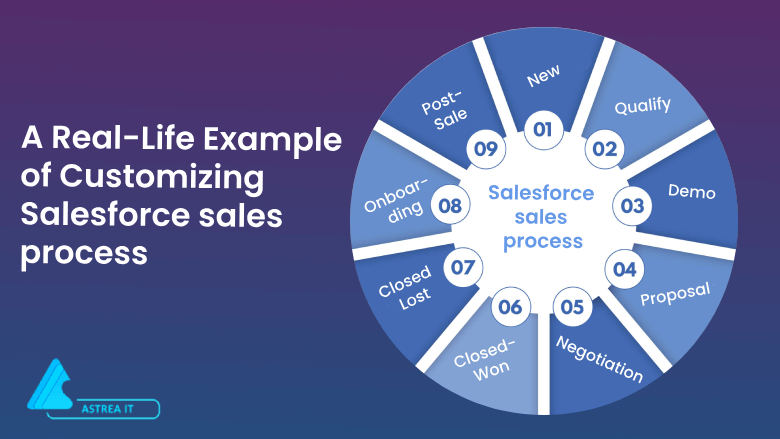
TechNexa Inc: A Brief Overview
TechNexa Inc. is a fast-growing software development company specializing in creating cutting-edge solutions for the healthcare industry. They provide software products and services for medical practices, clinics, and hospitals, with a focus on electronic health records (EHR) and telehealth applications.
The Challenge: Adapting to the Healthcare Market
TechNexa's sales team realized that the healthcare market was evolving rapidly, with new regulations and technologies influencing customer needs. Their existing, out-of-the-box Salesforce sales process was becoming inadequate for capturing and closing deals efficiently. TechNexa needed a customized sales process to:
1. Understand Healthcare Industry Trends: Keep up with the latest healthcare trends and regulations to offer tailored solutions.
2. Optimize Lead Qualification: Streamline lead qualification by focusing on prospects most likely to benefit from TechNexa's solutions.
3. Personalize Sales Interactions: Provide personalized interactions based on the customer's specific healthcare sector, size, and challenges.
4. Enhance Customer Engagement: Develop long-term relationships and encourage upsells and referrals.
The Customization Journey
Step 1: Define Sales Stages
TechNexa began by redefining their sales stages to match the healthcare industry's buying process. They created the following stages:
- - New: Incoming inquiries and potential prospects.
- - Qualify: Assessing the prospect's needs, budget, and decision-making process.
- - Demo: Offering personalized product demonstrations.
- - Proposal: Providing tailored solutions and pricing.
- - Negotiation: Addressing objections and finalizing terms.
- - Closed-Won: Successfully closing the deal.
- - Closed Lost: When a deal is lost.
- - Onboarding: Ensuring a smooth transition for the new customer.
- - Post-Sale: Nurturing the customer relationship and exploring upsell opportunities.
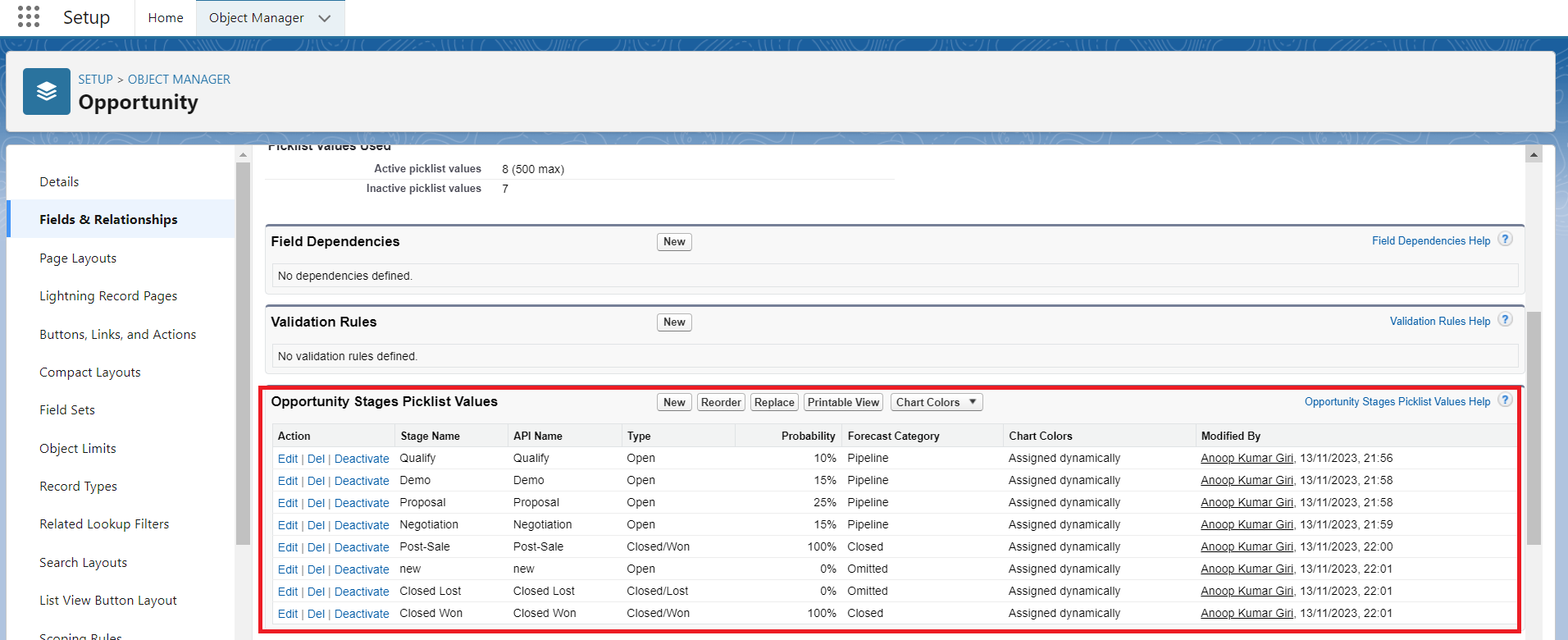
Figure 1: New stages are created for TechNexa healthcare sales process.
Step 2: Customize Opportunity Fields
TechNexa added custom fields to their opportunities, including:
- - Healthcare Sector: To categorize prospects by sector (e.g., hospitals, clinics, private practices).
- - Decision Maker: Identifying the person with the authority to make the purchase.
- - Key Challenges: Documenting prospects' pain points for tailored solutions.
- - Upcoming Regulations: Tracking industry regulations influencing customer decisions.
- - Customer Feedback: Recording post-sale feedback for continuous improvement.
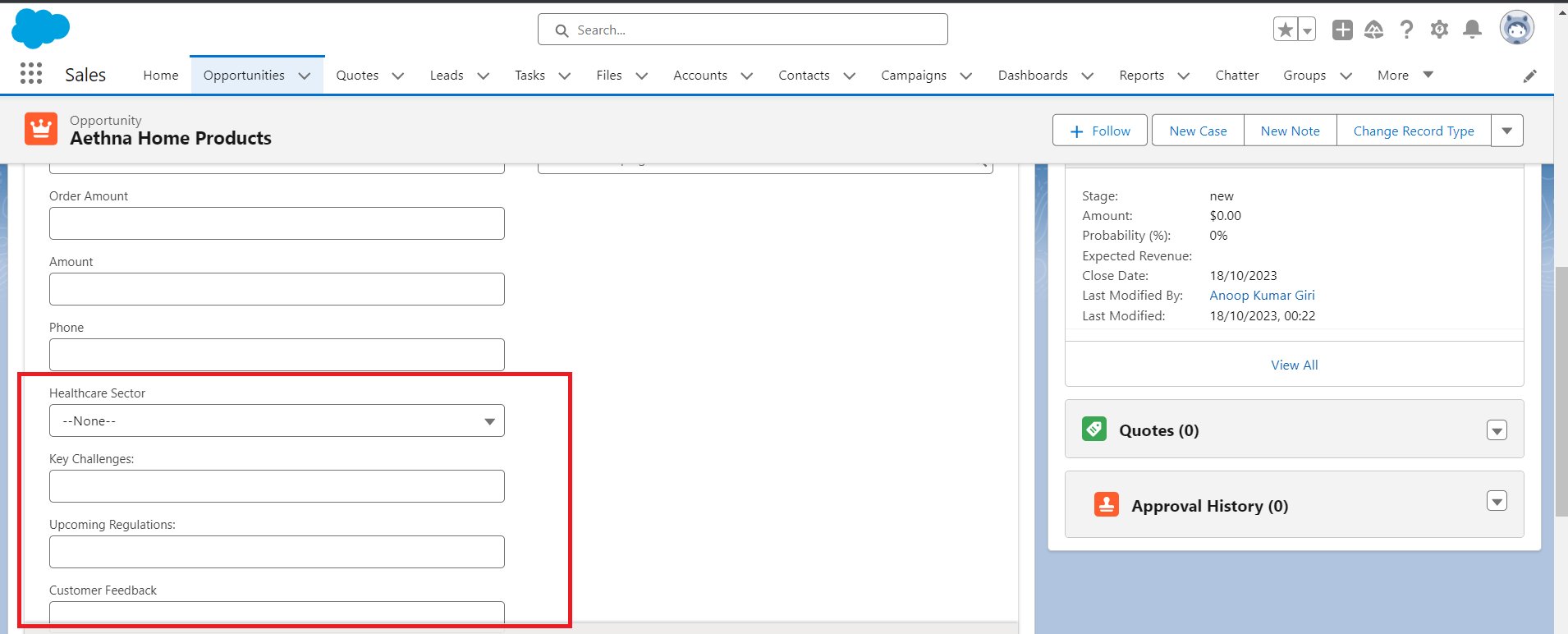
Figure 2: New Fields are created for TechNexa healthcare sales process as per requirements.
Step 3: create the Sales Process in Salesforce:-
- Firstly, enter Sales Process in the Quick Find box and then select Sales Processes.
- Now Click on the New button.
- After it, select Master from the Existing Sales Process field. And then Enter the Sales Process Name and Description. After entering all entries, click Save
- At last, from the Opportunity Stages screen, select the values which you want to associate with the new Sales Process. Then click Save.
You’re all set with the Sales Process.
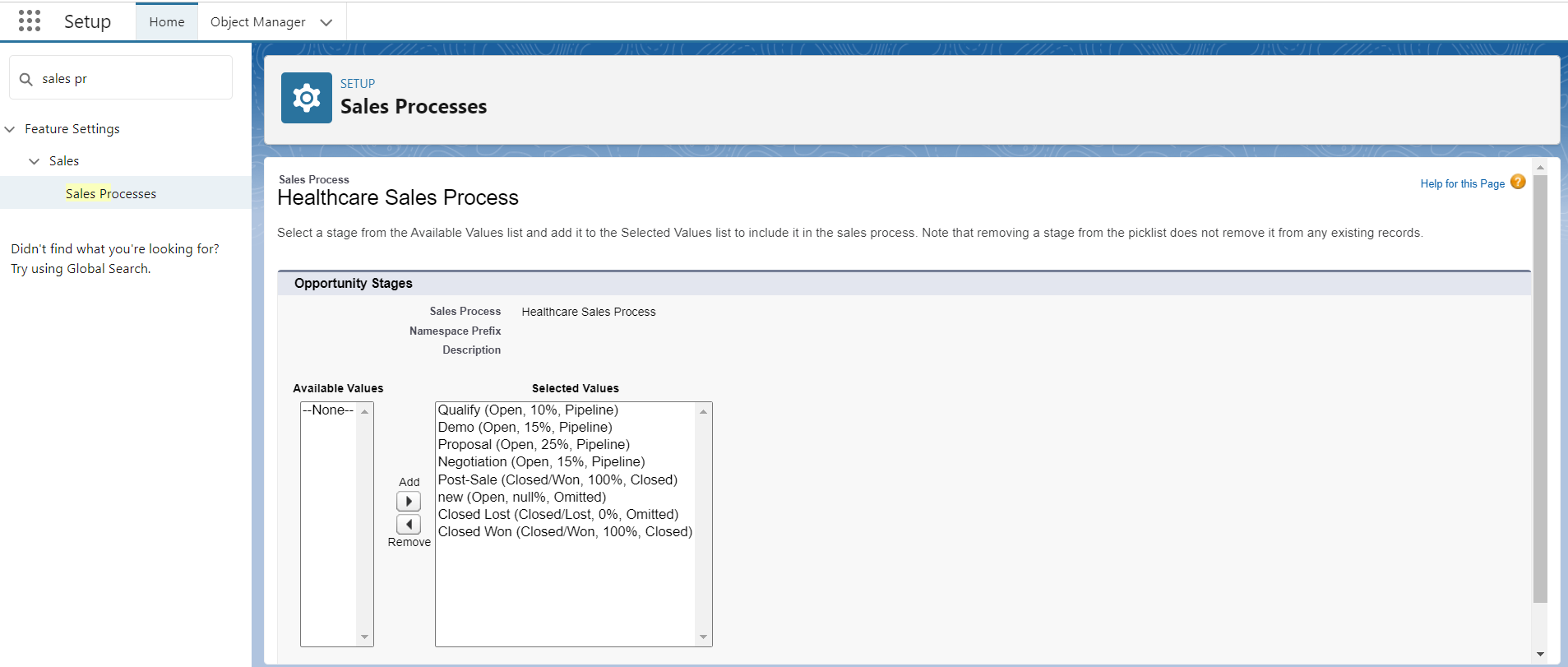
Figure 3: New created sales process with stages for Technexa healthcare sales process.
Step 4: Implement Automation
TechNexa used Salesforce automation tools to streamline their sales process:
- - flow: To trigger actions like sending personalized follow-up emails or scheduling demos.
- - Lead Scoring: Assigning scores to leads based on their readiness to buy.
- - Email Templates: Creating templates for personalized and consistent communication.
- - Reports and Dashboards: To track progress, identify bottlenecks, and gain insights into their sales pipeline.
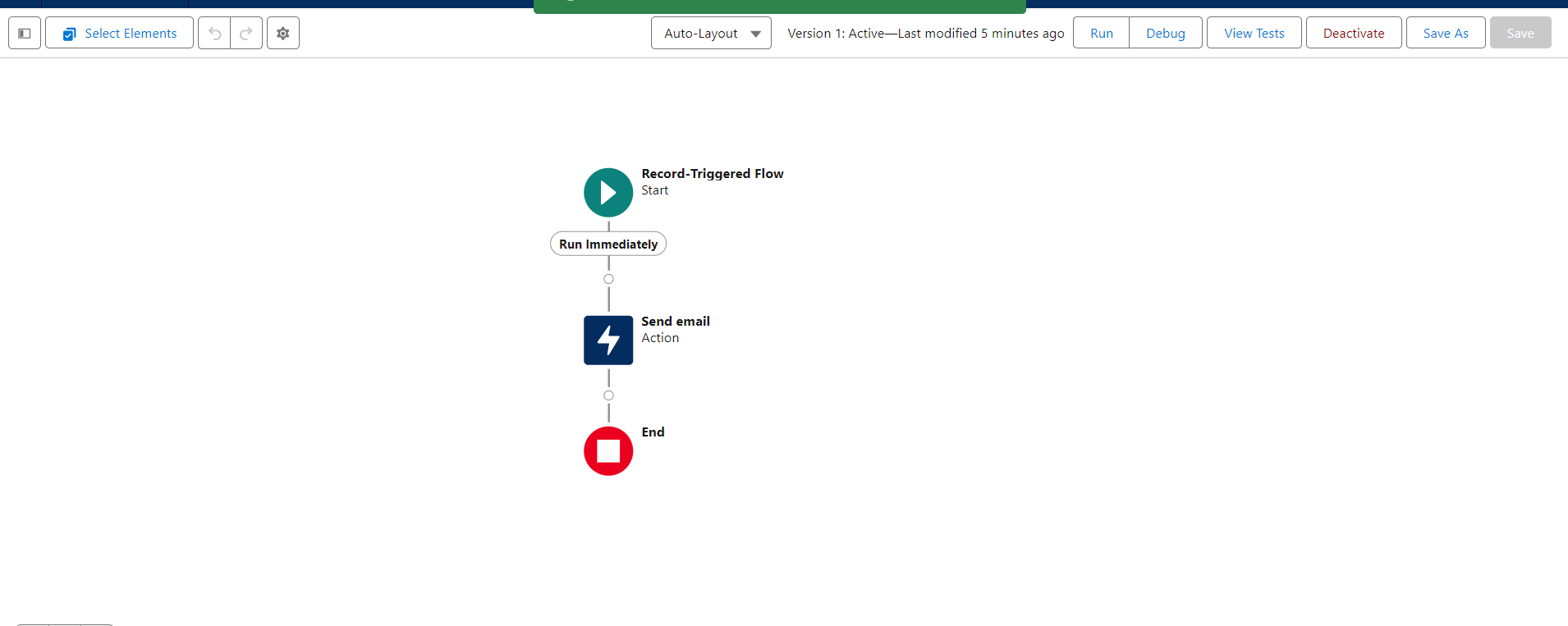
Figure 4: Send email notification to customer when deal is successfully closed.
Step 5: Personalize Communication
TechNexa's sales team personalized their communication with prospects:
- Sending tailored content based on prospects' healthcare sectors.
- Offering webinars and seminars on healthcare industry trends.
- Creating industry-specific case studies and success stories.
Step 6: Continuous Improvement
TechNexa regularly reviewed their customized sales process, collected feedback from their sales team, and analyzed performance data. They made adjustments as needed, fine-tuning their approach to stay aligned with the evolving healthcare market.
Results
Through Salesforce customization, TechNexa Inc. successfully tailored their sales process to the unique needs of the healthcare industry. The results were impressive:
- A significant increase in lead conversion rates.
- A better understanding of healthcare sector-specific challenges and needs.
- Improved customer engagement and long-term relationships.
- Faster adaptation to changing industry regulations.
Conclusion:
Customizing the sales process within Salesforce, as demonstrated by TechNexa Inc., can provide businesses with a competitive edge by aligning their strategies with market dynamics and customer preferences. Customization enables organizations to be agile and responsive to industry-specific challenges, ultimately leading to improved sales performance and customer satisfaction. If your business is facing similar challenges, take inspiration from TechNexa's journey and start customizing your Salesforce sales process today.
For any queries please reach out to support@astreait.com